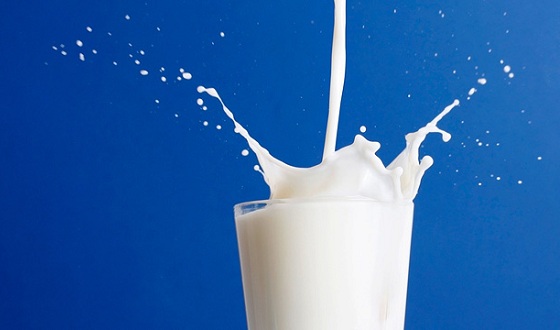Lactose intolerance is one of the most common food allergies; symptoms range from mild discomfort to extreme intestinal pain. Complete avoidance of dairy is perhaps the easiest way to avoid these problems, especially for young children. However, it might not be the only option. According to a recent study, infants with lactose intolerance, when given a specific probiotic strain, were able to tolerate lactose and even reverse their cow’s milk allergy.
Does Lactobacillus rhamnosus Combat Lactose Intolerance?
The specific strain that shows promise in lactose intolerance is Lactobacillus rhamnosus, a Gram-positive anaerobe probiotic bacteria. When administered to lactose-intolerant infants, the bacteria colonized the intestinal tract and produced positive changes within the gut microbiota. [1] Changes that helped the infants handle cow’s milk formula without issue. Could these findings translate into people of all ages?
We’ve known for years that probiotics support digestion and improve the absorption of nutrients, so it shouldn’t come as any surprise to point out a specific strain that helps with lactose intolerance. [2] Environmental pollutants and pesticides have been connected to the depletion of probiotics in the gut microbiome, potentially explaining the correlating rise in lactose intolerance cases. [3] Antibiotic use has also risen and has become a huge health issue that is likely associated with the dwindling probiotic levels in the population. [4]
How to Use Probiotics for Lactose Intolerance
While this research is great news, everyone’s body is different and there’s no guarantee every lactose intolerant person on the planet will have the same results. That said, take caution before using probiotics for lactose intolerance, gluten intolerance, or other food allergies. If it’s something you’re interested in, you can find this strain, among 18 others, in our newest probiotic formula FloraTrex™.
Have you seen any improvement in lactose intolerant symptoms after taking probiotics? Please share with us your experiences in the comments!
References:
- Roberto Berni Canani, Naseer Sangwan, Andrew T Stefka, et al. Lactobacillus rhamnosus GG-supplemented formula expands butyrate-producing bacterial strains in food allergic infants. The ISME Journal. 22 September 2015. doi:10.1038/ismej.2015.151.
- Rosa Krajmalnik-Brown, PhD, Zehra-Esra Ilhan, Dae-Wook Kang, PhD, and John K. DiBaise, MD. Effects of Gut Microbes on Nutrient Absorption and Energy Regulation. Nutr Clin Pract. 2012 Apr; 27(2): 201-214. doi: 10.1177/0884533611436116.
- Shehata AA, Schrodl W, Aldin AA, Hafez HM, Kruger M. The effect of glyphosate on potential pathogens and beneficial members of poultry microbiota in vitro. Curr Microbiol. 2013 Apr;66(4):350-8. doi: 10.1007/s00284-012-0277-2.
- Fatemeh Rafii, John B Sutherland, and Carl E Cerniglia. Effects of treatment with antimicrobial agents on the human colonic microflora. Ther Clin Risk Manag. 2008 Dec; 4(6): 1343-1358.
Dr. Edward F. Group III, DC, NP, DACBN, DCBCN, DABFM has studied natural healing methods for over 20 years and now teaches individuals and practitioners all around the world. He no longer sees patients but solely concentrates on spreading the word of health and wellness to the global community. Under his leadership, Global Healing Center, Inc. has earned recognition as one of the largest alternative, natural and organic health resources on the Internet.
The article What To Do About Lactose Intolerance? published by TheSleuthJournal – Real News Without Synthetics







